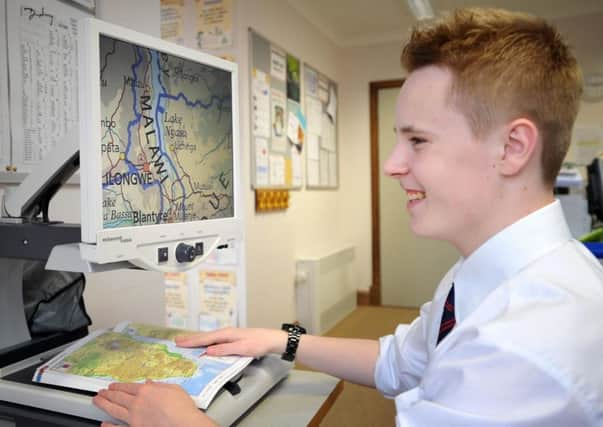Mark O'Donnell: Sight loss must not hold our children back


The Scottish Government has pursued an approach to delivering services and support which is grounded in human rights, seeking to deliver equality of opportunity for disabled people. This approach is now being tested in an environment of increased demand and pressure on resources. We are concerned that for too many young people with vision impairment the vital public services on which they rely are often no longer meeting their needs.
An important aspect of this challenge is that Scottish Government figures indicate we now have more young people living in Scotland with vision impairment. The Scottish Government’s school census figures show a significant increase in the number of pupils with diagnosed vision impairment, from 2,005 in 2010 to 4,175 in 2016. That means there are twice as many vision impaired young people of school age in just six years.
Advertisement
Hide AdAdvertisement
Hide AdRoyal Blind believes there needs to be more research into understanding these figures but the trend is clear. Research shows children with rare and other conditions, many of whom will be vision impaired, are living longer through improvements in treatment. A study by Edinburgh University showed the risk of neonatal death from premature birth more than halved between 1980 and 2005, and Blind Children UK has estimated than one in 20 babies born prematurely are likely to be blind.
We work with blind and partially sighted people throughout their lives, from our pre-school playgroup to the Royal Blind School to our young adult services, providing care for young people with complex needs, who are not able to live independently. We want more of this kind of support, but too often it is not happening. One concern is the ‘presumption of mainstreaming’, and we welcome the fact that the Scottish Government is consulting on this issue. We support blind and partially sighted pupils being educated in mainstream schools where that is right for them, but regularly these pupils are being let down by a lack of specialist support and too few are able to go to specialist schools like the Royal Blind School. This is contributing to an attainment gap with a third fewer vision-impaired pupils progressing to higher education compared to other pupils and also to a failure to teach the skills for everyday living which young vision-impaired people need to maximise their independence.
For those who cannot live independently after school, more should be done to ensure they have care options which meet their needs, rather than being allocated care provision which may be better suited to older people.
Royal Blind does not argue there are easy answers to these issues, but we believe it is imperative that governments at all levels work together and with the third sector to ensure every vision-impaired pupil has the same access to opportunity as children without sight loss. The children and young people we support have many talents and ambitions like other young people. It is up to all of us to ensure we give them the support they need to fulfil their potential. That is their basic human right.
Mark O’Donnell is chief executive of the charity Royal Blind